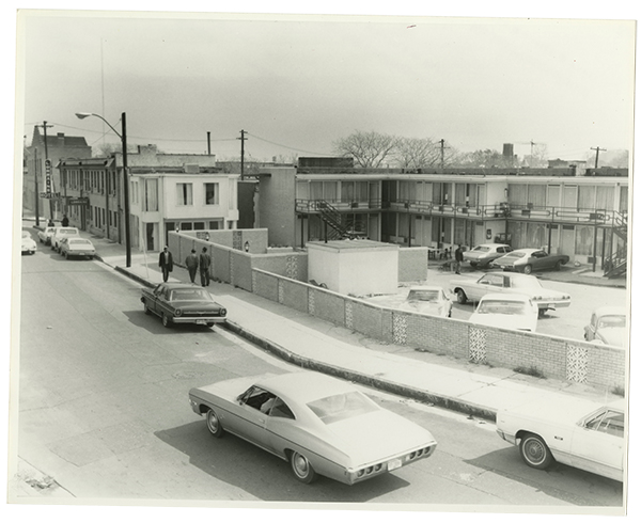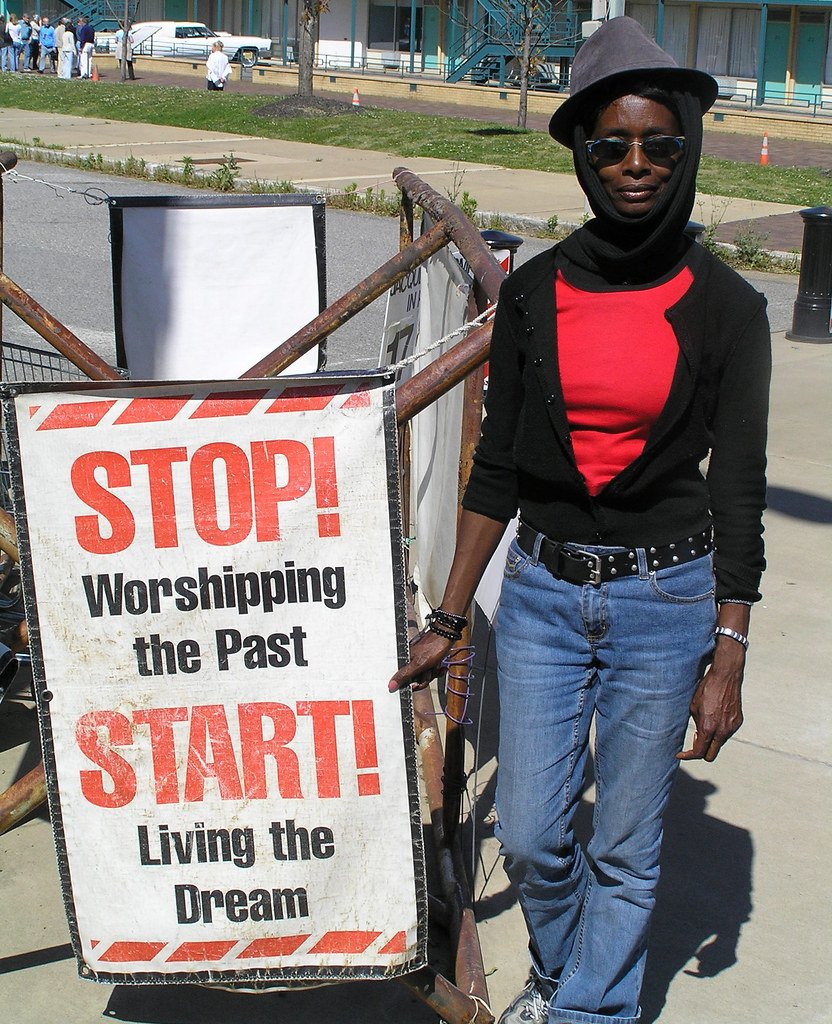About The Lorraine Motel
The Lorraine Motel in 1960.
You’ll still see a sign outside for The Lorraine Motel, but the National Civil Rights Museum is no longer a resting place for travelers visiting Memphis, TN. How it became the historic site where Dr. Martin Luther King Jr. was assassinated in 1968 is far from a simple story.
Originally opened as the Windsor Hotel in 1925, it was later changed to The Marquette Hotel. Walter Bailey became the owner in 1945 who, inspired by his wife, Loree, and the song “Sweet Lorraine” by Rudy Vallée, Teddy Wilson, and Nat King Cole, renamed it to The Lorraine Hotel. The hotel included a cafe and living quarters for the Baileys. Major additions during their ownership included a second floor with 12 additional rooms and drive-up access, successfully converting it from Hotel to Motel.
The Lorraine was one of the few places African-American travelers could enjoy overnight accommodations during segregation in America. It was included in “The Negro Motorist’s Green Book”, an annual guidebook published from the 1930s until the Civil Rights Act was passed in 1964. It listed all kinds of establishments, from gas stations to clubs to hotels to beauty parlors, across America that would cater to Black clientele, helping folks avoid sundown towns.
Recent photo of room 306.
Through the years, both Black and White guests returned to The Lorraine many times for its home-cooked meals, affordable prices, proximity to Stax Records & Beale Street, and reputation as a clean, safe environment. Recording stars such as Ray Charles, Lionel Hampton, Aretha Franklin, Ethel Waters, Otis Redding, The Staple Singers, and Wilson Pickett were among the many who stayed overnight during the late 1950s and early 1960s. Dr. Martin Luther King Jr. himself was a guest numerous times and often stayed in the same room, #306. His routine was not broken on his fateful trip to Memphis in 1968 to support the striking sanitation workers.
After King’s assasination, Bailey continued to run the motel, but he never rented King’s room again. He turned it into a memorial, and the room has been preserved to capture exactly what it looked like that day. Of the two beds, King's is not fully made as he had been lying down and wasn’t feeling well. The other was for his friend Dr. Robert Abernathy, who was sharing the room with him. Dishes left in the room were from the kitchen, where Loree Bailey prepared food for the motel’s guests.
Jacqueline Smith out front of The Lorraine Motel.
Walter Bailey declared bankruptcy in 1982. The Lorraine would have been sold at auction, but the Save The Lorraine organization bought it and decided to transform it into a museum. It was designated a historical site by the Tennessee Historical Commission, and an $8.8 million dollar renovation began. This development was marred by the forcible eviction of Jacqueline Smith in 1988, a maid who had lived and worked at the motel for 11 years. 34 years later, Jacqueline remains camped on the sidewalk out front of the museum, protesting the glorification of Dr. King’s murder, the gentrification of the area, and the museum funds not being used to promote King’s message of peace and assisting the poor. She still argues that King would be horrified to learn of the 27 million dollar investment that was used to immortalize his memory and evict the permanent residents of the building. Rather than be invested into King’s message of helping the advancement of poor communities at large. Although Smith's message has continued to be unwavering for the last 34 years, not much progress has been made to address her message by the Museum.
The Lorraine Motel’s National Civil Rights Museum opened in 1991 and features educational tours, various exhibitions, and motivational speakers throughout the year for visitors and the community as a whole. Their main focus is on sharing the culture and lessons from the American Civil Rights Movement and exploring how this significant era continues to shape equality and freedom globally. The cement out front of room 306 sports two large cars—a white 1959 Dodge Royal with lime green fins and a white 1968 Cadillac. The aqua doors are still numbered with the same sparse font that gives every appearance of a still functioning motel. It is instantly recognizable and seemingly suspended in time by one man’s death. A once welcoming location for weary travelers is now both a historical landmark and a bitter memory of what once was.
Katori Hall’s play, The Mountaintop, takes place in room 306 of The Lorraine Motel, the night of April 3rd, 1968. Dr. King is preparing to rest for the night after his “I’ve been to the Mountaintop” speech at the Mason Temple. A thundering storm and a beautiful maid throw off his nightly routine, bringing audiences an intimate look into the last night of one of the most revered civil rights leaders.
Tickets are on sale for The Mountaintop running May 19 - June 18. Click here to find out more about the production or buy your tickets by calling the Box Office (Tuesday-Friday, 10am-5pm) or online here.
Sources & Continued Reading
National Civil Rights Museum: About
https://www.civilrightsmuseum.org/about
The Lorraine Motel and Martin Luther King, By Allyson Hobbs. Published January 18, 2016.
https://www.newyorker.com/news/news-desk/the-lorraine-motel-and-martin-luther-king
The woman still protesting over Martin Luther King, By Harry Low, BBC News, Memphis, Tennessee. Published 13 April 2018
https://www.bbc.com/news/world-us-canada-43562269






